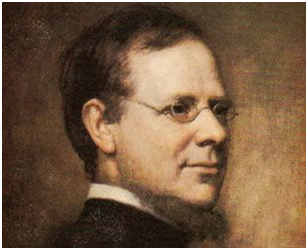Catholic churches will not take advantage of a new provision in the U.S. tax code.
Since 1894 all charitable groups that obtained a 501 (c) 3 tax letter have been excused from paying federal taxes, and usually local taxes. In 1954 there was an addition to that IRS policy. Named the Johnson Amendment after its sponsor, Senator Lyndon Johnson (1908-1973), the change specified that tax-exempt groups could not endorse partisan candidates. Critics in recent years, including President Donald Trump, have called for the elimination of the Johnson Amendment. Early this July the IRS said that churches (though not other non-profit groups) can indeed endorse candidates.
The new provision is symbolic. Reading between the lines, it is meant to make legal what evangelicals do anyway. Evangelical pastors and congregational leaders routinely give pulpit time to candidates during local and national campaigns. Many evangelical media outlets comment on the desirability of candidates and elected officials.
Catholic churches will continue to adhere to the Johnson Amendment for reasons practical, pastoral, and theological.
The practice of Catholic churches staying out of elections is not because “politics has no place in church.” Just the opposite. Can you think of anything more political than the ancient Roman administration executingthe Creator and Redeemer of the entire universe?
Catholic churches, newspapers, and internet media, guided by the First Amendment to the U.S. Constitution, enter politics without favoring particular candidates. Catholicism and the Constitution agree: a separation of religious institutions and government institutions is beneficial to both. The engagement between Catholicism and politics in our country occurs in the voluntary give-and-take between Catholic groups and society, and more significantly between individual Catholic citizens and our democratic processes. In practice this means that Catholic churches and Catholic officials teach morality as it pertains to issues like the environment, the sanctity of each life, or the tragedy of war. They must do so. They are not, however, by their ecclesial standing competent to instruct the laity on candidate preferences or on the intricacies of specific pieces of legislation. When priests, bishops, deacons and religious—in their official roles—wade too deeply into partisan politics, they violate Catholic ecclesiology.
Bishops and most Catholic priests in our country are U.S. citizens. They lose no rights or duties or privileges of citizenship because of their job. For example, a priest at the ballpark among his friends can grouse all he wants about any politician, or he can praise a specific bill in the legislature. Clergy and religious should freely vote in elections. The mistake occurs when, in the church or at a parish function, a priest asserts his partisan opinion as if it were the Catholic teaching.
When priests, bishops, deacons and religious—in their official roles—wade too deeply into partisan politics, they upend the order of Catholic sacraments. The sacrament of baptism gives a person the responsibility to practice the beatitudes, to exercise the works of mercy and to live a vocation as homemaker, neighbor, spouse, citizen or worker. A baptized person needs no further permission from the rectory or chancery to improve society. Just as the sacrament of ordination adds nothing to a person’s competency to teach mathematics, so too a priest or religious can lobbya legislator based on his or her own citizenship. One’s education and experience might yield competency in worldly affairs, but ordination in itself does not.
When priests, bishops, deacons and religious—in their official roles—wade too deeply into partisan politics, they squander their moral standing. Yes, Catholicism has absolutes. At the same time, the wise Catholic—both Church officials and laity—knows that no one appreciates righteousness. Principled, yes. Arrogant, never.
The spirit of the Johnson Amendment well suits Catholicism. Our democratic process, though strained nowadays, still contains avenues for influencing the common good. There is no need for clergy to take shortcuts that likely do more harm than good.
Droel is with the National Center for the Laity (PO Box 291102, Chicago, IL 60629).
